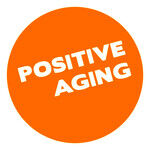If you've had a tough 2023 (and it sure looks like lots of folks have), it might be hard to turn the page to 2024 with gusto. How soon thoughts of comfort and joy associated with Christmas can shift to the rearview mirror, as we face the resolutions and expectations that come with the dawning of the New Year — with them a whole new set of feelings of worry and stress.
It is easy to focus on the big and troubling things in the world, and we should. But what can get lost are the little things we can do that are accessible to us, that contribute and advance our well-being.
The following are just a couple of them. For instance, by reminding ourselves to connect with the physical world around us, we can open ourselves up to the essential human emotion of wonder. It is often referred to as a moment of "awe." As a January 2023 New York Times report by Hope Reese points out, this moment can be "a salve for a turbulent mind ... While many of us associate awe with dramatic, life-changing events, the truth is that awe can be part of everyday life ... just like joy, contentment and love," she reminds us.
According to Dacher Keltner, a psychologist at the University of California, Berkeley, research suggests finding a moment of awe "has tremendous health benefits that include calming down our nervous system and triggering the release of oxytocin, the 'love' hormone that promotes trust and bonding." It also has psychological benefits. "Many of us have a critical voice in our head, telling us we're not smart, beautiful or rich enough. Awe seems to quiet this negative self-talk," says Keltner. It deactivates the default mode network, "the part of the cortex involved in how we perceive ourselves."
"One of the most reliable ways to experience awe, Dr. Keltner found, was in the simple act of witnessing the goodness of others. When we see others doing small gestures, like walking an older person across the street, we start feeling better and are also more likely to perform good deeds," writes Reese. "Goodness in others is often overlooked," says Keltner.
Sharon Salzberg, a mindfulness teacher and author, also believes in the importance of this "interpersonal wonder." She recommended "paying attention to your neighborhood bus driver or grocery clerk, looking for those daily moments of kindness."
"Awe is an emotion rarely studied in psychology, but one that can have a powerful impact on your wellbeing," adds Psychology Today's Susan Krauss Whitbourne. "New research teases apart how awe can contribute to self-understanding and meaning in life."
Dr. Robert Waldinger is a clinical professor of psychiatry at Harvard Medical School and the director of the Harvard Study of Adult Development and author of "The Good Life," which explores what is known as the Harvard Study of Adult Development. Reports The New York Times' Lauren Jackson, "For generations, researchers have followed families from different socioeconomic backgrounds, asking them incredibly detailed questions and giving them medical exams. ... What emerged is that a crucial element of happiness is relationships. If you're going to make one single decision that would ensure your own health and happiness, science tells us that it should be to cultivate warm relationships of all kinds. It's not just about having a partner. It's in every realm of your life."
"Research shows that a lot of people think, 'Oh, I'm going to be happy in the future when I get that job I want, when I get the money or when I retire and I have more time,'" writes Jackson. "But the idea of a time surplus is a fallacy. You can do something small and actionable today."
Taking this concept even further, scientists from the Greater Good Science Center at the University of California, Berkeley in collaboration with other research institutions recently launched a research initiative called the BIG JOY Project. Preliminary results from over 70,000 participants in more than 200 countries show that people who committed to daily "micro-acts" of joy "experience about a 25% increase in emotional well-being over the course of a week," reports NPR's Allison Aubrey. "Micro-acts led to increased feelings of hope, optimism, as well as moments of fun or silliness."
Examples of these micro-acts include participants "making a gratitude list or journal, or engaging in acts of kindness such as visiting a sick neighbor or doing a nice gesture for a friend — or a stranger. Some micro-acts involve celebrating another person's joy, or engaging in self reflection, meditation, or taking the time to identify the silver lining in a bad situation, known as positive reframing."
Writes Aubrey, "At a time when global conflicts, political divide, and societal problems may seem insurmountable, some may question whether small acts of joy can help make a difference? The answer, the researchers say, stems from the ideas of the Dalai Lama and Archbishop Desmond Tutu, who both spoke about how it's possible to feel joy even in the midst of suffering, and to use that feeling to help do good."
"What we're hoping is that when people finish Big Joy they have that sense that, oh, my happiness is contingent in part on how generous and invested I am in common humanity," says Emiliana Simon-Thomas, a BIG JOY project leader.
Judith Moskowitz, a social scientist at the Northwestern University Feinberg School of Medicine, who is not involved in the BIG JOY analysis, tells NPR that "the ongoing research creates an opportunity to better understand the effects of these small steps. ... So many of the things that are causing us stress and sadness are out of our control," she adds.
Just as the benefits of exercise wear off, so too do the effects of these micro-acts, notes the NPR report. "If you want to stay physically fit, you have to keep exercising," reports Aubrey. "The same likely goes for well-being."
Follow Chuck Norris through his official social media sites, on Twitter @chucknorris and Facebook's "Official Chuck Norris Page." He blogs at http://chucknorrisnews.blogspot.com. To find out more about Chuck Norris and read features by other Creators Syndicate writers and cartoonists, visit the Creators Syndicate webpage at www.creators.com.
Photo credit: Luca Upper at Unsplash






View Comments